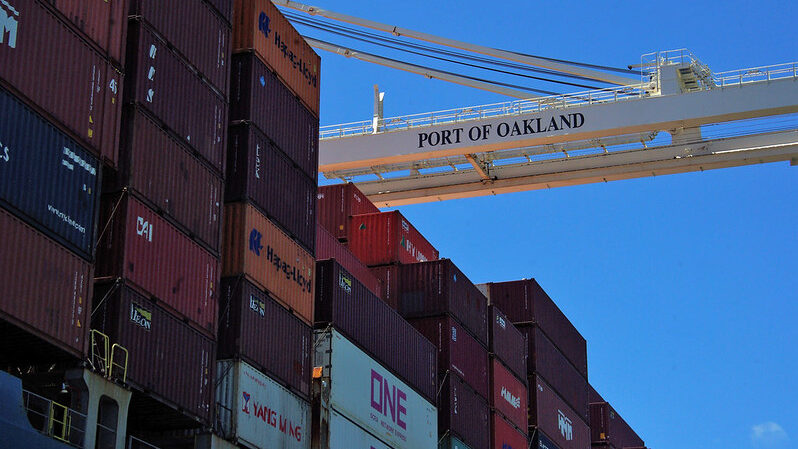Container lines would receive unprecedented loading and unloading status at U.S. ports if new legislation aimed at prioritizing American exports were to become law.
The American Port Access Privileges Act, introduced Wednesday by U.S. Congressmen John Garamendi and Jim Costa, both California Democrats, would put American exporters “at the front of the line at our ports” in supporting the economy, according to the lawmakers.
The lawmakers hope to take advantage of the momentum generated through the relatively quick passage of the Ocean Shipping Reform Act of 2022, a bill signed into law earlier this month that took less than a year to move through Congress.
“Foreign exporters’ access to the American market and our consumers is a privilege, not a right,” Garamendi said. “Cargo ships looking to offload foreign-made products and profit off West Coast ports must provide opportunities for American exports in return. Congress must restore fairness at our ports for American exporters to help reduce the United States’ longstanding trade imbalance with countries like China.”
According to the bill’s text, details of how preferential berthing would work would be hammered out through rules issued no later than 90 days after the enacting of the law.
However, carriers loading and unloading both imports and exports would receive preferential treatment at ports, according to the lawmakers, by establishing a “secondary berthing preference” for ocean carriers that serve multiple U.S. ports or have cargo bookings of at least 51% American. exports as determined by weight or container volume.
“This new preferential berthing will reward ocean carriers that serve both importers and American exporters by moving those vessels to the front of the queue for unloading and loading,” the lawmakers said. “It will similarly incentivize ocean carriers to make second-leg voyages to ports like the Port of Oakland, which is critical for California’s agricultural exporters.”
The legislation also would:
- Require export-carrying vessels seeking preferential berthing report cargo bookings at least seven days in advance to port operators.
- Ensure the new preferential berthing for export-carrying vessels would not interfere with U.S. Coast Guard orders for commercial vessels, port safety or collective bargaining agreements for port workers.
- Codify the current preferences for military, Jones Act and other U.S.-flagged vessels in place at many major American ports.
To evaluate the effect of preferential booking on carrier and port operations, the law would also authorize the U.S. Department of Transportation’s Bureau of Transportation Statistics to collect annual data on berthing and cargo practices from American ports and marine terminal operators.
The data would include the total number of vessels by registry, class and type, as well as the average percentage of cargo bookings of U.S. exports that ocean carriers report to the ports and terminals.











